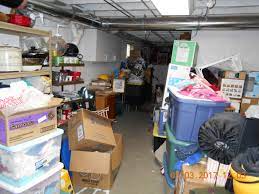Do you have a hard time concentrating on tasks? Are you constantly checking things to make sure they are done right? Do you feel like you can’t stop thinking about certain things? If so, you may be suffering from OCD. OCD is a mental disorder that affects both men and women of all ages. It can cause significant distress and impairment in daily functioning. In this blog post, we will discuss the different 5 common types of OCD and how to recognize and treat them.
Contents
5 Common Types Of OCD
 There are numerous 5 common types of OCD, and it is important to be aware of the different types. This is important as it can help you to understand your own OCD or that of a loved one. It can also be helpful in seeking out the most effective treatment for the condition.
There are numerous 5 common types of OCD, and it is important to be aware of the different types. This is important as it can help you to understand your own OCD or that of a loved one. It can also be helpful in seeking out the most effective treatment for the condition.
The five main types of OCD are:
- Checking
- Contamination
- Hoarding
- Rumination and mental compulsions
- Symmetry and ordering
Let’s understand each type further, also the symptoms in order to recognize them:
Checking
Checking is a type of OCD that is characterized by a need to check things repeatedly. This could be checking the locks on doors, checking the stove, or even checking your phone. It is often accompanied by a feeling of anxiety or unease. People who have this type of OCD often feel a sense of need to control their environment. In fact, checking can become so excessive that it takes up a lot of time and energy, and can interfere with daily life.
For instance, someone with checking OCD may feel the need to check the locks on their doors multiple times before leaving the house. This can become so time-consuming that they are late for work or appointments. Checking can also be dangerous, as it can lead to people missing important safety checks.
Some of the common obsessive compulsions of need include;
- checking if the door is locked
- rechecking that appliances are turned off
- frequently looking for reassurance
- checking emails and letters
- worries of having a mental illness
These are common symptoms that exhibit by those who have Checking OCD. If you or someone you know experiences these symptoms. It is important to seek professional help.
Contamination
 Contamination OCD is characterized by a fear of contamination. This could be a fear of germs, dirt, toxins, or any other substance that the person perceives as being harmful. People with this type of OCD often have compulsions such as washing and cleaning in an attempt to remove the contaminants. However, these compulsions only serve to temporarily relieve the anxiety and do not actually reduce the fear of contamination.
Contamination OCD is characterized by a fear of contamination. This could be a fear of germs, dirt, toxins, or any other substance that the person perceives as being harmful. People with this type of OCD often have compulsions such as washing and cleaning in an attempt to remove the contaminants. However, these compulsions only serve to temporarily relieve the anxiety and do not actually reduce the fear of contamination.
People with contamination OCD may feel a need to wash their hands multiple times a day. They may also avoid touching certain objects or people for fear of becoming contaminated. In severe cases, people with this type of OCD may become housebound.
Some of the common symptoms of contamination OCD include:
- Fear of dirt, germs, or toxins
- Compulsive washing and cleaning
- Avoidance of certain objects or people
- Intrusive thoughts about contamination
- Excessive concern with cleanliness
If you think you may have contamination OCD, it is important to seek professional help. Because it will help you to lead a normal and healthy life further. There are types of treatment that work according to condition. So, choose what maybe works for you.
Hoarding
 Hoarding is a type of OCD in which a person compulsively collects and holds onto objects, often to the point where their living space is severely cluttered. People with this type of OCD may have difficulty getting rid of things, even if they are no longer useful. They may feel excessively attached to their possessions and may suffer from anxiety or distress when they are forced to part with them.
Hoarding is a type of OCD in which a person compulsively collects and holds onto objects, often to the point where their living space is severely cluttered. People with this type of OCD may have difficulty getting rid of things, even if they are no longer useful. They may feel excessively attached to their possessions and may suffer from anxiety or distress when they are forced to part with them.
Even so, people with hoarding OCD often recognize that their behavior is excessive and may be deeply ashamed of it. They may try to keep their condition a secret from friends and family members, which can lead to social isolation. There are numerous symptoms that can characterize hoarding, including:
- An excessive attachment to possessions
- Difficulty getting rid of things, even if they are no longer needed
- Severely cluttered living space
- Social isolation
- Deep shame or embarrassment about one’s condition
If you think you or someone you know may be struggling with hoarding OCD, it is important to seek professional help. Otherwise, the condition is likely to get worse over time and can lead to serious health and safety risks.
Rumination and mental compulsions
It is not uncommon for people with OCD to have both types of compulsions. People with rumination-type compulsions tend to dwell on certain thoughts or images. This can cause a great deal of anxiety and distress. People with mental compulsions often perform repetitive behaviors such as counting, tapping, or saying certain words or phrases over and over again. These behaviors are meant to relieve the anxiety caused by obsessive thoughts.
Rumination is basically defined as repeating a worry over and over in your mind. This can look different for everyone, but some common rumination and mental compulsions signs include:
- Spending a lot of time trying to figure out why you are having certain thoughts
- Making lists or notes about your worries
- Avoiding people, places, or things that trigger your obsessions
- Constantly checking things (e.g., locks, appliances)
- Repeating certain behaviors or rituals (e.g., hand-washing, opening, and closing doors)
- Needing reassurance from others about your fears
These types can be difficult to live with, but there are treatments available that can help. If you think you might have OCD, it’s important to seek professional help. A mental health professional can provide you with an accurate diagnosis and create a treatment plan.
Symmetry and ordering
This is often characterized by an intense need for symmetry, order, and perfection. People with this type of OCD may have difficulty completing tasks unless everything is “just right.” This can result in significant time delays and frustration. Common compulsions include excessive cleaning, ordering, and checking.
People with OCD often recognize that their thoughts and behaviors are irrational, but they feel powerless to stop them. The condition can be debilitating, causing severe emotional distress and interfering with work, school, and personal relationships. Moreover, people with OCD are at an increased risk for depression, anxiety, and substance abuse.
Some of the symptoms include;
- Repeating actions a certain number of times or until it “feels right”
- Arranging objects in a precise, symmetrical, or “just so” manner
- Excessive hand washing, showering, or grooming
- Counting (e.g., steps, tiles on the floor, breaths)
- Checking (e.g., locks, appliances)
It is important to recognize the symptoms and get help. OCD is a treatable condition, with most people responding well to treatment. The first step is to see a mental health professional for an accurate diagnosis. These 5 common types of OCD are severe and also can be mild. However, it is important to recognize these types and symptoms as well.
How To Treat The 5 Common Types Of OCD?
 When you identify your type of OCD, you can begin to work on treatment. The most common and effective form of treatment for all types of OCD is Cognitive Behavioral Therapy (CBT). This type of therapy helps you change the way you think about your obsessions and compulsions.
When you identify your type of OCD, you can begin to work on treatment. The most common and effective form of treatment for all types of OCD is Cognitive Behavioral Therapy (CBT). This type of therapy helps you change the way you think about your obsessions and compulsions.
CBT has been proven to be very effective in treating all types of OCD, but it may take some time to see results. You will likely need to meet with a therapist weekly for several months. If you are not seeing improvement, don’t give up! Some people benefit from medication in addition to CBT. Medication can help lessen the symptoms of OCD so that you can focus on learning new coping skills in therapy.
Also, there is another therapy that is a part of CBT, known as ERP. This is where you will work with your therapist to gradually face your fears. This may sound scary, but it is a very effective treatment for OCD. As this therapy helps you to get rid of your fear and anxiety related to your OCD.
So, these are some of the most effective treatments for the different types of OCD. You can also consider Mantra Care for the treatment of OCD. Mantra Care is a website that offers online Cognitive Behavioral Therapy (CBT) for OCD and other mental health conditions.
The mental health experts in Mantra Care will help you to understand your thoughts and feelings related to OCD. You can book your free consultation today for more information.
Helpful Tips For 5 Common Types Of OCD
There are also many helpful tips that can be shared in order to help someone manage their OCD. The following are some general tips:
Educate yourself about types of OCD
It is very important to learn as much about OCD as possible in order to better understand the disorder and how to manage it. There are many resources available online and at your local library. Moreover, your mental health professional can also provide you with information about OCD. In fact, many people find it helpful to attend OCD support groups in order to learn from others who are living with the disorder.
Join a support group
Support groups provide an excellent opportunity to meet others who are dealing with similar issues. This can be a great way to share information and tips on how to cope with OCD. Support groups are also a great way to feel less alone and isolated. There are various online and offline support groups available.
Challenge your negative thoughts
Challenge your negative thoughts by coming up with realistic alternatives. For example, if you’re convinced you will fail a test, remind yourself that you have studied hard and are capable of doing well. This is actually considered to be one of the most effective treatments for OCD.
Consider healthy coping mechanisms
 It is important to find healthy coping mechanisms to deal with the stress and anxiety associated with OCD. There are many healthy coping mechanisms, such as exercise, relaxation techniques, and journaling. It is important to choose the coping mechanisms that work best for you. Moreover, healthy mechanisms can be used in conjunction with traditional OCD treatments, such as medication and therapy.
It is important to find healthy coping mechanisms to deal with the stress and anxiety associated with OCD. There are many healthy coping mechanisms, such as exercise, relaxation techniques, and journaling. It is important to choose the coping mechanisms that work best for you. Moreover, healthy mechanisms can be used in conjunction with traditional OCD treatments, such as medication and therapy.
Be patient with yourself
Recovery from OCD can take time and it is important to be patient. It is also important to remember that there will be good days and bad days. In addition, patience is important when it comes to treatment. For example, exposure and response prevention (ERP) therapy can be very effective but it can take time to see results. So, the best tip is to be patient with yourself and the treatment process.
OCD can be a difficult disorder to live with, but there are many resources and treatments available that can help. It is important to educate yourself about the disorder and to find healthy coping mechanisms. You must also be patient with yourself and the treatment process. With time and effort, you can manage your OCD and live a happy and productive life.
Conclusion
To conclude, these 5 common types of OCD can be mild, moderate, or severe. They can also be short-lived or lifelong. And they can significantly interfere with daily functioning and quality of life. The types of OCD described above are just a few of the many possible subtypes.
If you think you might have OCD, it’s important to seek professional help. Early diagnosis and treatment can make a big difference in managing the condition and improving your outlook. With proper care, most people with OCD can gain significant relief from their symptoms and live full, productive lives. Thank you for reading! I hope this article was helpful in understanding the different types of OCD.
If you are looking for affordable Online OCD Counseling MantraCare can help: Book a trial OCD therapy session


